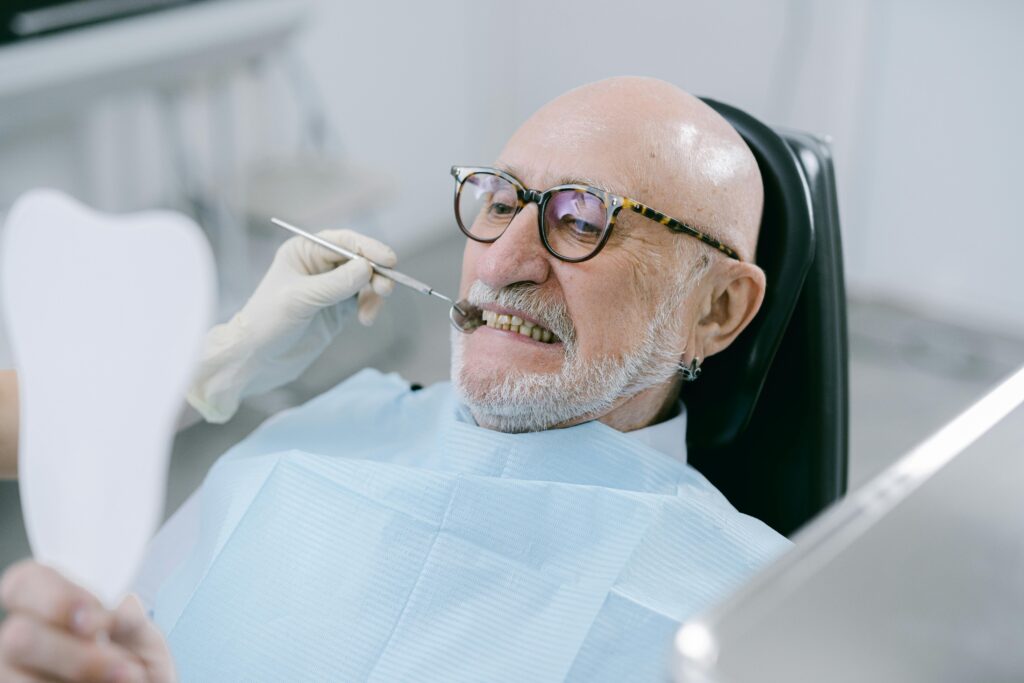Cosmetic dentistry is often associated with enhancing the appearance of your smile, but its benefits go beyond aesthetics. Many cosmetic dental procedures also contribute to better oral health, preventing dental issues and improving overall functionality. If you are considering cosmetic dentistry, you may be surprised to learn how it can positively impact your oral health. Let’s explore the ways cosmetic dentistry can improve not just your smile but also your dental well-being.
1. Strengthening Teeth with Dental Crowns and Veneers
Dental crowns and veneers do more than just enhance the look of your teeth; they provide essential protection and strength.
- Dental Crowns: When a tooth is weakened due to decay, fractures, or root canal treatment, a dental crown acts as a protective cap, preventing further damage and restoring functionality.
- Veneers: These thin porcelain shells not only improve the shape and color of your teeth but also protect enamel from wear and tear, reducing the risk of sensitivity and decay.
By reinforcing weakened teeth, crowns and veneers contribute to long-term oral health and reduce the chances of needing extractions or more invasive treatments.
2. Correcting Misalignment with Orthodontic Treatments
Crooked, crowded, or misaligned teeth can lead to various oral health issues, including difficulty in cleaning, uneven wear, and jaw pain. Cosmetic orthodontic treatments like braces or clear aligners help to:
- Improve bite alignment, reducing stress on the jaw.
- Make it easier to clean between teeth, lowering the risk of cavities and gum disease.
- Prevent premature wear on teeth caused by improper alignment.
By straightening your teeth, these treatments contribute to a healthier, more functional mouth and prevent future dental complications.
3. Filling Gaps with Dental Implants and Bridges
Missing teeth not only affect your appearance but also create serious oral health issues. When a gap is left unfilled, adjacent teeth may shift, leading to misalignment and bite problems. Dental implants and bridges offer a permanent solution that restores function and preserves oral health:
- Dental Implants: These act as artificial tooth roots, preventing bone loss and maintaining jaw structure.
- Bridges: These fill in gaps between teeth, preventing shifting and restoring proper chewing function.
Replacing missing teeth helps maintain the integrity of your bite, reducing the risk of jawbone deterioration and further tooth loss.
4. Preventing Decay with Teeth Whitening and Bonding
While teeth whitening is primarily a cosmetic procedure, it can indirectly contribute to better oral health. People who invest in a brighter smile are often more motivated to maintain their oral hygiene, leading to improved brushing and flossing habits.
- Teeth Whitening: Professional whitening removes surface stains, making it easier to detect early signs of decay or damage.
- Dental Bonding: This procedure fixes minor chips and cracks, preventing bacteria from entering and causing cavities.
By addressing small imperfections, these treatments help maintain a healthier smile and prevent future dental problems.
5. Enhancing Gum Health with Gum Contouring
An uneven gum line or excessive gum tissue can cause oral health concerns, including pockets where bacteria thrive, leading to gum disease. Gum contouring, a cosmetic procedure that reshapes the gum line, offers several benefits:
- Reduces gum pockets, making it easier to clean and reducing the risk of periodontal disease.
- Creates a balanced gum-to-tooth ratio, improving both aesthetics and oral hygiene.
- Helps eliminate discomfort caused by excessive gum tissue.
Healthy gums are essential for overall oral health, and gum contouring can contribute to maintaining them in good condition.
6. Boosting Confidence and Encouraging Oral Hygiene
One of the lesser-known benefits of cosmetic dentistry is its positive impact on a person’s self-esteem and motivation to maintain good oral hygiene. When people feel good about their smiles, they are more likely to take care of their teeth by brushing, flossing, and attending regular dental check-ups.
Additionally, many cosmetic procedures require patients to follow better oral care routines to maintain their results. For instance, those who receive teeth whitening or veneers are advised to avoid staining foods and practice diligent oral hygiene.
Cosmetic dentistry is more than just about aesthetics—it plays a significant role in improving oral health. From strengthening teeth and correcting alignment to preventing decay and maintaining gum health, these treatments offer long-term benefits beyond just a beautiful smile. If you’re considering cosmetic dentistry, consult with a professional to explore the options that will not only enhance your appearance but also contribute to better oral health in the long run. A healthy, confident smile is an investment that pays off in many ways!




